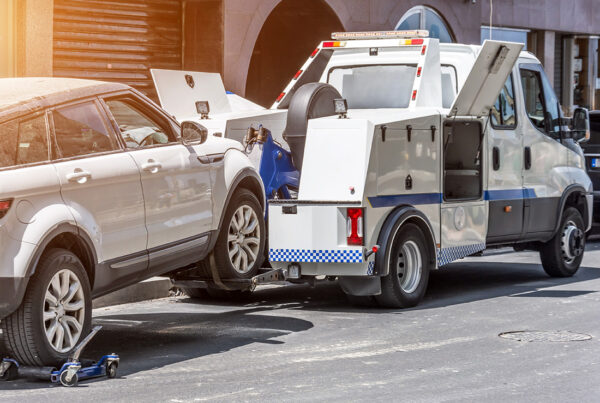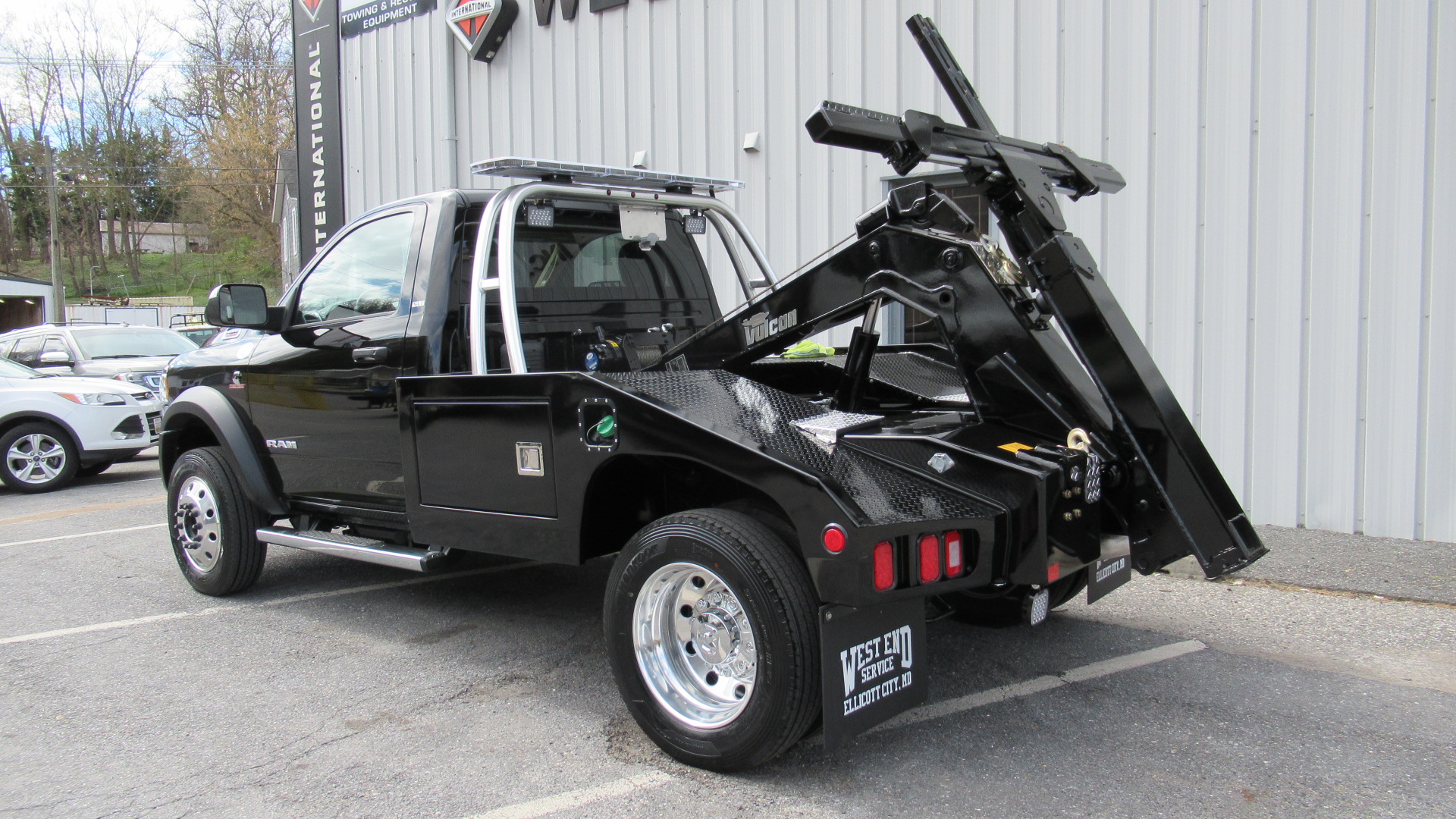Top 10 Tips for Starting an Independent Towing Service
Discover the essential steps to launch your independent towing truck business successfully. Expert advice inside!

Starting an independent towing truck business can be a challenging yet rewarding venture. With the right approach and expert advice, you can launch a successful operation that stands out in the competitive towing industry. Whether you're new to towing or looking to branch out on your own, these tips will steer you towards towing triumphs.
Starting an Independent Towing Truck Service: Expert Advice
Embarking on the journey of starting an independent towing truck service requires thorough preparation and strategic planning. This guide aims to provide invaluable insights and practical steps to help you navigate through the initial stages of setting up your business. From legal considerations to operational strategies, we cover the essential elements to get your towing service off the ground.
List of Top Choices
- Create a Business Plan
- Register Your Company and Get Licensed
- Secure Startup Funding
- Purchase Tow Trucks and Equipment
- Obtain Tow Truck and Business Insurance
- Hire Qualified Tow Truck Drivers
- Develop a Marketing Strategy
- Deliver Reliable and Professional Service
- Know Your Target Market and Local Regulations
- Separate Personal and Business Finances
Create a Business Plan

- Outline your services and target market.
- Project your financials, including startup costs, revenue, and expenses.
- Detail your operational strategies for efficiency and growth.
A comprehensive business plan is your roadmap to success in the towing industry. It helps clarify your business concept, identifies your niche in the market, and lays out financial projections to guide your decisions. Most importantly, a well-crafted plan can be instrumental in securing funding, as it shows potential investors or lenders that you have a clear vision and strategy for your towing service. Include detailed sections on your services, market analysis, marketing strategies, management, and financial plan to create a solid foundation for your business.
Register Your Company and Get Licensed
- Choose a business structure and register your company.
- Obtain necessary federal, state, and local licenses and permits.
- Ensure compliance with industry regulations.
Registering your company and getting the proper licenses is a crucial step in establishing a legitimate towing service. Deciding on a business structure, such as a Limited Liability Company (LLC), provides liability protection and other benefits. After registering, focus on acquiring the necessary licenses and permits; these can vary by location but often include a general business license, a commercial vehicle operating license, and permits specific to towing operations. Staying compliant with all regulations protects you from fines and legal issues, reinforcing your reputation for professionalism and reliability.
Secure Startup Funding
- Determine financial needs for initial investments and operations.
- Explore funding options: loans, investors, crowdfunding.
- Create a detailed budget that covers all startup and operational costs.
Securing adequate funding is essential to cover the initial costs of starting your towing service, including purchasing tow trucks, securing a storage facility, and obtaining insurance. Assess your financial requirements carefully to create a budget that supports your business plan. Then, explore various funding options to find the best match for your situation, whether that’s a loan from a financial institution, investment from business partners, or crowdfunding. A solid financial plan will help ensure you have the resources you need for a successful launch.
Purchase Tow Trucks and Equipment

- Invest in reliable tow trucks with the right towing capacity and fuel efficiency.
- Acquire essential equipment, including tow chains, straps, and safety gear.
- Consider buying good used trucks to reduce initial costs.
Purchasing the right tow trucks and equipment is a significant investment that underscores the efficiency and safety of your operations. Focus on vehicles that meet your service’s specific needs, balancing towing capacity with fuel efficiency and maintenance costs. Don’t overlook essential towing equipment and safety gear that will enable you to handle various towing situations. While new trucks boast the latest technology and warranties, quality used trucks can also serve your needs well at a fraction of the cost, allowing you to allocate funds to other areas of your business.
Obtain Tow Truck and Business Insurance
- Secure tow truck insurance with comprehensive coverage and high limits.
- Acquire general business liability insurance to protect against other risks.
- Consider additional coverage options, like uninsured motorist insurance.
Having the right insurance policies in place is critical for protecting your towing business from financial losses due to accidents, damages, or liabilities. Tow truck insurance is specialized coverage that acknowledges the unique risks of towing operations; it typically includes liability, physical damage, and medical payments coverage. It’s also wise to secure a general business liability insurance policy to safeguard against other risks not covered by tow truck insurance. Depending on your business model, exploring additional insurance options, such as uninsured motorist coverage, can offer further protection.
Hire Qualified Tow Truck Drivers
- Recruit drivers with commercial driver's licenses (CDLs) and clean driving records.
- Prioritize drivers with towing experience and strong customer service skills.
- Conduct thorough background checks for safety and reliability.
Finding the right team is just as important as having the right equipment. Qualified tow truck drivers are essential for the success of your business, as they not only represent your company but also directly impact the level of service your customers receive. Ensure that your drivers have the necessary licenses, experience, and a commitment to safety and professionalism. Conducting background checks and valuing strong communication skills can help you build a reputable and reliable team, ultimately enhancing your business's reputation in the market.
Develop a Marketing Strategy

- Build a professional website and leverage social media to reach potential customers.
- Partner with local businesses, such as auto repair shops and dealerships.
- Engage in local SEO practices to appear prominently in local search results.
Once your towing service is operational, you'll need to attract customers—and an effective marketing strategy is key. A well-designed website serves as your digital storefront, providing information about your services and making it easy for customers to contact you. Social media platforms can increase your visibility and allow you to engage directly with your community. Additionally, local SEO strategies ensure that your business appears in search results when people nearby are in need of towing services. Remember, visibility can lead to more service calls, so invest in your marketing efforts.
Deliver Reliable and Professional Service
- Maintain a 24/7 operation to meet customer needs at any time.
- Ensure your fleet is well-maintained to avoid downtime and service delays.
- Provide excellent customer service, including clear communication and fair pricing.
Success in the towing industry hinges on your ability to provide reliable and professional service. Being available around the clock can significantly boost your competitive edge, as emergencies don't adhere to a 9-to-5 schedule. Regular maintenance of your fleet reduces the likelihood of breakdowns that could hamper your ability to respond promptly. Moreover, a focus on customer service, through transparent communication and pricing, fosters trust and can lead to repeat business and referrals. Ultimately, satisfied customers are the foundation of a thriving towing service.
Know Your Target Market and Local Regulations
- Identify your primary customer base: general public, businesses, or city contracts.
- Research demand in your service area to determine the volume of potential calls.
- Understand and comply with all local towing regulations and policies.
Understanding your target market and the specific needs within your service area allows you to tailor your services accordingly. Whether your focus is on assisting the general public, partnering with businesses, or securing city contracts, knowing your audience is key to effective marketing and service offerings. Furthermore, every area has its own set of regulations governing towing practices; staying informed and compliant ensures that your operation runs smoothly and legally. This knowledge will also help you make informed decisions about where to focus your growth efforts and how to differentiate your services.
Separate Personal and Business Finances
- Open a business checking account and get a business credit card.
- Keep clear records of all business transactions and expenses.
- Build business credit for potential future loans and lines of credit.
One of the foundational steps of professionalizing your towing service is to separate your personal finances from your business's finances. This not only simplifies bookkeeping and tax filing but also contributes to your business’s credibility. Opening a business bank account and obtaining a business credit card enable you to track expenses and income accurately, making financial management more straightforward. Furthermore, these practices are essential for establishing and building business credit, which could be beneficial should you seek loans or additional funding in the future. Keeping personal and business finances distinct helps safeguard both your personal assets and your business's financial health.
Launching an independent towing truck service demands careful planning, dedication, and an understanding of both the market and the regulatory landscape. By developing a comprehensive business plan, registering and licensing your company, securing funding, investing in the right equipment, obtaining insurance, and hiring skilled drivers, you lay a solid foundation for your business. Coupled with a strategic marketing approach, a commitment to reliable and professional service, and the meticulous separation of personal and business finances, you set the stage for a successful towing service. Remembering these tips and consistently applying them can help you navigate the challenges of the towing industry and steer your business toward long-term success.
What's Your Reaction?





























































